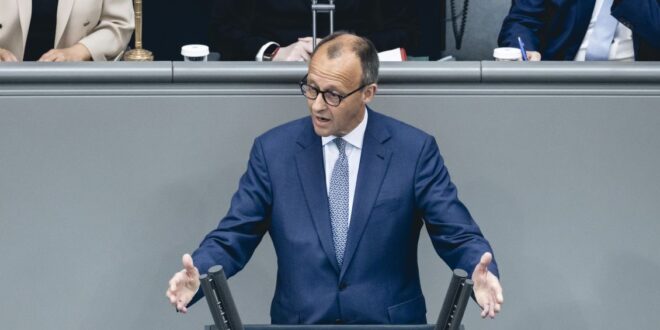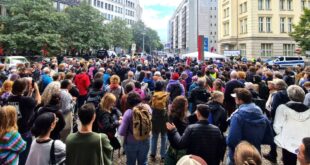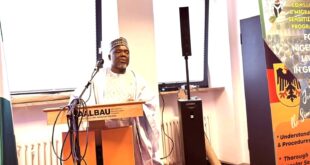German Chancellor Friedrich Merz has moved to clarify controversial remarks that sparked outrage over the past week, insisting that Germany continues to depend on immigration. Speaking during a visit to London, Merz acknowledged that people with migration backgrounds are now an “indispensable part of our labour market” and that the country “can no longer manage without them — regardless of where they come from, their skin colour, or whether they belong to the first, second, third or fourth generation in Germany.”
The controversy erupted after Merz commented in Potsdam that although Germany had reduced migration, “we still have, of course, this problem in the city-scape (Stadtbild),” and suggested that large-scale deportations were needed. His words — which appeared to link migration, deportation and urban decline — triggered a wave of condemnation from opposition parties, civil-society groups and even his coalition partners. A few days later, asked by a journalist to clarify the remark, he doubled down, saying “ask your daughters what I might have meant.”
Public backlash has been swift. Thousands joined demonstrations across German cities under slogans such as “We are the city-scape,” protesting what they view as divisive and racialised rhetoric. In Berlin, several thousand people rallied earlier this week, followed by 1,500 in Kiel, with more protests planned in Cologne and Magdeburg.
In his London statement, Merz sought to refine his intention by his controversial remarks, saying the “problem” referred to people without regular residence status who do not work and “do not abide by our rules.” He argued that such individuals shape public perceptions of insecurity in certain city districts, while emphasising that Germany must continue to welcome and regulate immigration to meet labour-market needs.
Nonetheless, observers say the damage has been done.
The debate underscores a broader dilemma for Germany’s centre-right: how to maintain a credible migration and integration policy that attracts skilled workers while addressing concerns about social cohesion and public safety — without sliding into exclusionary or populist language. Political scientist Hans Vorländer warned that conservative parties “cannot win by trying to out-populist the far right,” noting that such strategies risk alienating both the democratic centre and minority communities.
For Germany’s migrant-origin communities, the controversy strikes a sensitive chord. By linking visible migration backgrounds to urban “problems,” critics argue, the Chancellor risks alienating millions who contribute daily to German society. Migrants and their descendants play vital roles in healthcare, logistics, industry and the service economy — precisely the sectors suffering acute labour shortages.
Merz’s later acknowledgment that immigration remains vital to the economy will ring hollow unless it is matched by his government’s consistent policies and language that affirm belonging. As the debate on migration and identity continues, diaspora organisations stress the importance of vigilance — to ensure that political discourse promotes unity rather than division, and recognises the essential role of people with a migration background in shaping modern Germany.
Felix Dappah
 THE AFRICAN COURIER. Reporting Africa and its Diaspora! The African Courier is an international magazine published in Germany to report on Africa and the Diaspora African experience. The first issue of the bimonthly magazine appeared on the newsstands on 15 February 1998. The African Courier is a communication forum for European-African political, economic and cultural exchanges, and a voice for Africa in Europe.
THE AFRICAN COURIER. Reporting Africa and its Diaspora! The African Courier is an international magazine published in Germany to report on Africa and the Diaspora African experience. The first issue of the bimonthly magazine appeared on the newsstands on 15 February 1998. The African Courier is a communication forum for European-African political, economic and cultural exchanges, and a voice for Africa in Europe.


































